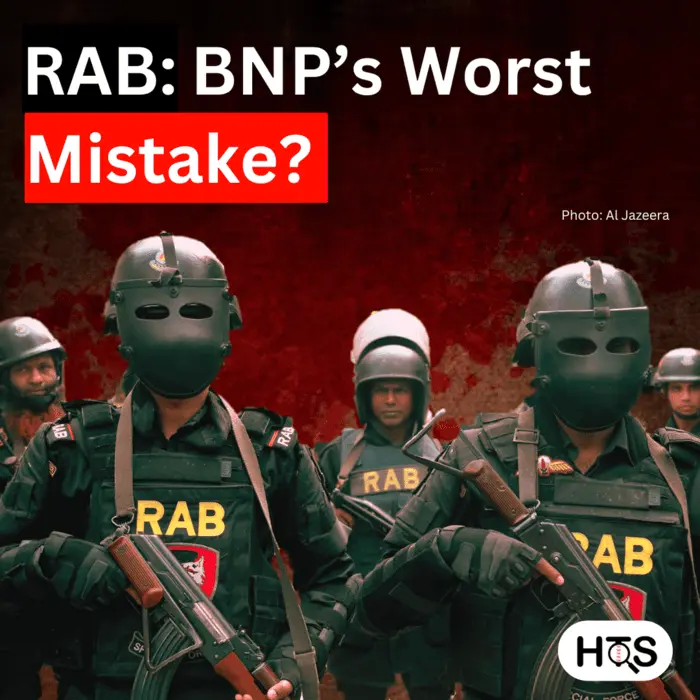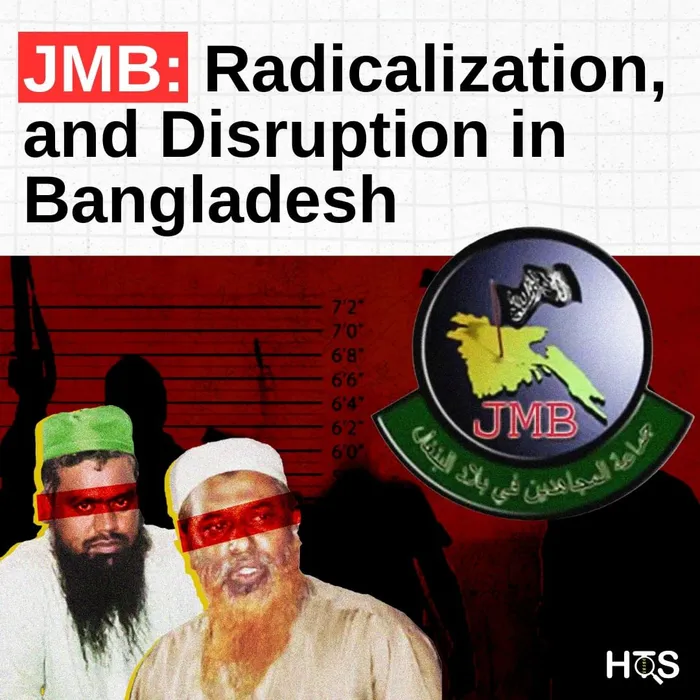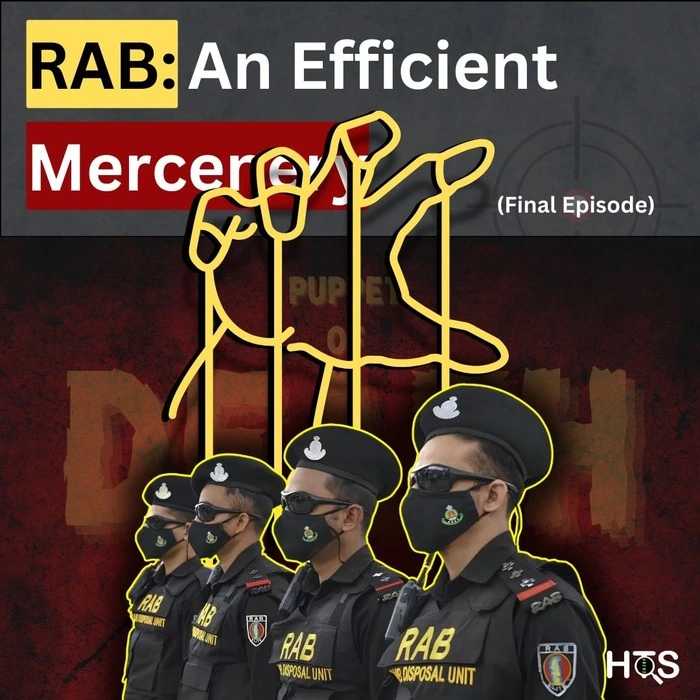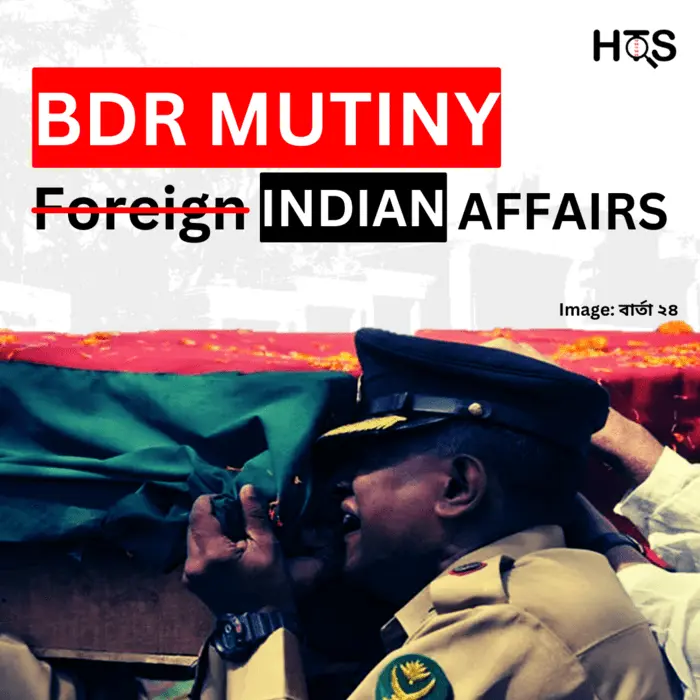RAB: BNP's Worst Mistake?

During the previous Awami League government, the worsening law and order situation concerned then-Prime Minister Khaleda Zia. On October 10, 2002, marking the government’s one-year anniversary, she acknowledged that the improvement in law and order expected by the public had not occurred, though she promised swift action. Consequently, from October 16, 2002, to January 9, 2003, a joint force operation called “Operation Clean Heart” was launched to combat illegal weapons and terrorism. The operation involved nearly 24,000 army personnel, 350 navy members, about 1,000 BDR troops, and 700 Ansar and police officers.
After conducting the operation for 84 days, the army was withdrawn from their camps. The day before the withdrawal began, the ‘Joint Forces Immunity Ordinance 2003’ was issued.
Reports indicate that on the first day of the operation, approximately 1,400 people were arrested, most of whom were BNP activists. During the three-month operation, at least 12,000 people were arrested, 2,028 firearms were recovered, and around 30,000 rounds of ammunition were recovered.
News reports state that between 45 and 50 people were killed during Operation Clean Heart, while Human Rights Watch reported at least 60 deaths. The BNP-led coalition government acknowledged 12 deaths due to heart attacks after arrest.
In his book, then Law Minister Moudud Ahmed noted that pressure to withdraw the army came from within the party due to the high number of arrested BNP members and growing criticism of extrajudicial killings and torture, which risked damaging the army’s reputation.
However, the operation was supported by the Federation of Bangladesh Chambers of Commerce and Industry (FBCCI).
At the time, the country’s citizens felt so besieged by terrorism that Operation Clean Heart was seen by many as a necessary, albeit harsh, measure. Initially, there was relief, but this quickly waned as reports emerged of innocent or suspected individuals being victims of the operation’s brutality. Claims of deaths due to “crossfire” or heart attacks became increasingly unconvincing and led to public discomfort.
The rise in crime and terrorism under the BNP government in 2001 spurred the idea to create the RAB in 2003. Legal constraints on the police and incidents like Operation Clean Heart, which had caused widespread public harm, accelerated the formation of the RAB. On July 12, 2003, the RAB was legally established through an amendment to the Police Armed Forces Act, 2003. Many of the armed forces personnel involved in Operation Clean Heart became the pioneers of the RAB. The U.S. provided direct support for equipment and training, while the UK assisted with training on rules of engagement and interrogation. The RAB operates under the Ministry of Home Affairs and was initially feared to continue the harsh tactics of the military operation. However, once it was integrated into the police force, the public felt a sense of relief. With over 12,000 members across 15 units, the RAB is managed by officers of at least the rank of Deputy Inspector General or equivalent.
In 1998, the Jamaat-ul-Mujahideen Bangladesh (JMB) was established and gradually increased its terror activities. Notably, on August 17, 2005, JMB carried out 460 bomb explosions across 300 sites in 63 districts within half an hour. Their targets expanded to include courts and government buildings. To counter this, the RAB was deployed, leading to the arrest of over 700 JMB members and affiliates of the political party Jagrato Muslim Janata Bangladesh, which reduced JMB’s influence.
In March 2006, the RAB arrested JMB leader Shaikh Abdur Rahman, though Awami League leader Mirza Azam labeled it as a BNP drama. By 2007, Rahman and other prominent JMB leaders, including Siddiqul Islam (known as Bangla Bhai), were also arrested.
In January 2011, JMB members allegedly threatened to kill Prime Minister Sheikh Hasina and blow up the Chattogram Central Jail and court buildings unless detained JMB operatives were released. By October 2011, at least 25 JMB operatives were arrested. The RAB later reported that JMB was no longer active but continued efforts to recruit members. The RAB also demonstrated its skill in handling the 2016 Holey Artisan Bakery attack.
International criticism of RAB’s extrajudicial activities has been persistent. In 2017, Swedish Radio exposed a covertly recorded interrogation where a RAB officer admitted to regularly abducting, killing, and disposing of people. In October 2020, U.S. senators wrote a letter calling for sanctions against RAB. In August 2021, the British Foreign, Commonwealth, and Development Office imposed sanctions on current and former RAB members. The Tom Lantos Human Rights Commission also demanded RAB’s designation as a prohibited entity, but the government questioned the sources of their information. Although Salman F. Rahman hinted in May 2024 that the U.S. might lift the sanctions, this was later refuted as a rumor.
The Rapid Action Battalion (RAB) was initially praised for crime suppression, but their reputation declined due to revelations of extrajudicial killings. Public concern grew as their actions were questioned, and Sheikh Hasina, then leader of the opposition, criticized RAB’s extrajudicial activities, confronting Prime Minister Khaleda Zia. However, after Sheikh Hasina was elected, the question arises: whether she upheld the validity of her earlier criticisms?
Time itself revealed the truth.
Sources
- WikiLeaks: U.K. trained Bangladeshi ‘death squad’ | NBC NEWS
- Rapid Action Battalion | Banglapedia
- Rapid Action Battalion: Bangladesh’s notorious paramilitary force | Al Jazeera
- Five years of RAB | The Daily Star
- ‘Death squad’: Inside Bangladesh’s Rapid Action Battalion | DW
- “Crossfire” | Human Rights Watch
- Body Count | Netra News
- Bangladesh: Alleged extrajudicial killings in the guise of a ‘war on drugs’ | Amnesty International
- US sanctions on Bangladesh’s RAB: What happened? What’s next? | Atlantic Council
- US not lifting sanctions on RAB: State Dept | The Business Standard
- US for lifting Rab sanctions | The Daily Star
- Rights Activists Welcome US Sanctions on Bangladesh’s Elite Paramilitary Force | VOA
- Crossfire not a solution: BNP | The Daily Star
- BNP pioneered crossfire, abduction, killing: Hasan | Daily Sun
- র্যাব বিলুপ্তির পক্ষে-বিপক্ষে | DW
- যে পরিস্থিতিতে এবং যেভাবে তৈরি হয়েছিল পুলিশ ও সামরিক সদস্যদের বিশেষ বাহিনী র্যাব | BBC
- Jamaatul Mujahidin Bangladesh: Weakened, But Not Destroyed | West Point



